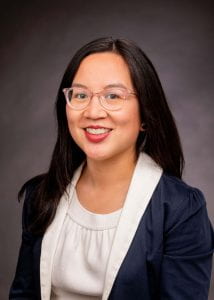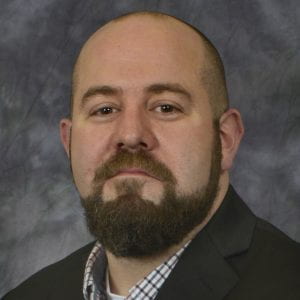About Us
Our research group is located at the VA Puget Sound Medical Center in Seattle. We are a part of the Northwest Network MIRECC (Mental Illness Research, Education, and Clinical Center), whose mission is to study PTSD and its complex comorbidities, including addiction and traumatic brain injury.
Our primary goal is to find new ways to help people recover from trauma, through exploring the mechanism of PTSD and related disorders, and directly applying what we learn to the development and optimization of new treatment options. We are mission based, and committed to maintaining the highest standards of integrity in our work. This includes a devotion to the transparent dissemination of accurately observed findings, and always working to be collaborative and open with each other and with other research groups. See more details on our specific research interests here, and current projects here.
People:
Rebecca Hendrickson MD, PhD completed her undergraduate and psychiatry training at the University of Washington in Seattle, medical school and graduate school at Washington University in St. Louis, and her research fellowship at the VA Puget Sound in Seattle. In her graduate training, she worked with Dr. Tim Holy studying the accessory olfactory (pheromone) system. During her fellowship training, she worked with Drs. Murray Raskind and Elaine Peskind studying the pathophysiology of PTSD and common comorbid conditions. Currently, in addition to her research, she sees patients in the PTSD Outpatient Clinic (POC) at the Seattle VA, and teaches in the UW psychiatry residency program.
 Carolyn Fort (Clinical Lab Manager) completed a B.S. in psychology and brings to our group nearly twenty years of experience as a Senior Research Specialist in the University of Arizona’s Department of Psychiatry, where they coordinated protocols and data for a wide range studies addressing particularly the neural correlates of emotion and the effects of emotional awareness on cardiologic health. In their spare time, Carolyn has volunteered in Arizona with the Arizona-Sonora Desert Museum’s Raptor Free Flight Program and produced a monthly storytelling series, and in Seattle is active in advocating for trans and gender-expansive folks through the Gender Odyssey Conference.
Carolyn Fort (Clinical Lab Manager) completed a B.S. in psychology and brings to our group nearly twenty years of experience as a Senior Research Specialist in the University of Arizona’s Department of Psychiatry, where they coordinated protocols and data for a wide range studies addressing particularly the neural correlates of emotion and the effects of emotional awareness on cardiologic health. In their spare time, Carolyn has volunteered in Arizona with the Arizona-Sonora Desert Museum’s Raptor Free Flight Program and produced a monthly storytelling series, and in Seattle is active in advocating for trans and gender-expansive folks through the Gender Odyssey Conference.
 Becky Stone (Study Coordinator) earned a B.A. in Psychology and has experience working with both adult and pediatric research populations. Prior to joining the team, she supported research studies in the areas of muscular dystrophy, spinal muscular atrophy, and epilepsy at Oregon Health and Sciences University. She is interested in the physical impacts of stress and trauma, and is the coordinator for the RECOVER study.
Becky Stone (Study Coordinator) earned a B.A. in Psychology and has experience working with both adult and pediatric research populations. Prior to joining the team, she supported research studies in the areas of muscular dystrophy, spinal muscular atrophy, and epilepsy at Oregon Health and Sciences University. She is interested in the physical impacts of stress and trauma, and is the coordinator for the RECOVER study.
 Aaron Rosser (Research Assistant) graduated from the University of Washington with a dual degree in Psychology and Philosophy. During his time there, he worked with the School of Nursing DPEN team to develop an evidence-based intervention for informal caregivers, and volunteered his time on the board of the non-profit Circle of Friends for Mental Health. This work was a motivating for his decision to join the MIRECC, to help meet the needs of those living with trauma. Outside of work, he’s passionate about reading, philosophical theory, and playing his flute.
Aaron Rosser (Research Assistant) graduated from the University of Washington with a dual degree in Psychology and Philosophy. During his time there, he worked with the School of Nursing DPEN team to develop an evidence-based intervention for informal caregivers, and volunteered his time on the board of the non-profit Circle of Friends for Mental Health. This work was a motivating for his decision to join the MIRECC, to help meet the needs of those living with trauma. Outside of work, he’s passionate about reading, philosophical theory, and playing his flute.
 Katharine Liang, MD, PhD (MIRECC Research Fellow) completed her undergraduate and psychiatry training at the University of Washington in Seattle, and medical school and graduate school at The University of North Carolina School of Medicine. She is currently an Advanced Postdoctoral Fellow in Mental Illness Research and Treatment at the VA Puget Sound MIRECC in Seattle. In her graduate training, she worked with Dr. Jude Samulski where she developed an AAV viral vector to modulate the oxidative stress response in a mouse model of age-related macular degeneration. In residency, she worked with Dr. John Neumaier studying gene expression in serotonin neurons in mouse models of acute stress. Her current research involves developing an electroretinogram biomarker to predict treatment response in PTSD, a project recently funded with a VA seed grant. In addition to her research, she sees patients in the Neuromodulation clinic at the Seattle VA.
Katharine Liang, MD, PhD (MIRECC Research Fellow) completed her undergraduate and psychiatry training at the University of Washington in Seattle, and medical school and graduate school at The University of North Carolina School of Medicine. She is currently an Advanced Postdoctoral Fellow in Mental Illness Research and Treatment at the VA Puget Sound MIRECC in Seattle. In her graduate training, she worked with Dr. Jude Samulski where she developed an AAV viral vector to modulate the oxidative stress response in a mouse model of age-related macular degeneration. In residency, she worked with Dr. John Neumaier studying gene expression in serotonin neurons in mouse models of acute stress. Her current research involves developing an electroretinogram biomarker to predict treatment response in PTSD, a project recently funded with a VA seed grant. In addition to her research, she sees patients in the Neuromodulation clinic at the Seattle VA.

Andrew Nicholls, LICSW (Clinical Social Worker) earned his BA in Psychology at UCLA, and received his Masters of Social Work from the University of Southern California. He specializes in working with survivors of trauma, persons with chronic mental illness and substance use disorders, as well as crisis intervention as a licensed clinical social worker. Prior to pursuing higher education, Mr. Nicholls spent over 9 years in the US Army Reserve as a Civil Affairs Specialist, Team Leader, and Korean linguist. He was deployed in support of Operation Iraqi Freedom and is a combat veteran. Currently, he works as a research social worker at the VA Puget Sound Health Care System’s NW MIRECC. Mr. Nicholls is actively involved with several veterans groups and nonprofits in the greater Puget Sound including Minority Veterans of America, Veterans Rites, IAVA, and the King County Veterans Consortium. He is on the steering committees for the Forefront Suicide Prevention “Safer Homes, Suicide Aware” initiative at the University of Washington School of Social Work and Path with Art’s Veterans Initiative.

Kimberly Hart, MPAS, PA-C, DFAPPA (Research Study Clinician) graduated from the University of Washington School of Medicine/MEDEX Physician Assistant Training Program. She has her Master of Physician Assistant Studies in Psychiatry. PA Hart has practiced her entire career with the Department of Veterans Affairs and has over two decades of research experience. Her areas of focus include Post Traumatic Stress Disorder, Alcohol Use Disorder, Traumatic Brain Injury and Alzheimer’s Disease. Previously, she has served on the Boards of the Washington Academy of Physician Assistants and Banchero Disability Partners. She enjoys gardening along with preserving her harvests through canning, pickling, and exploring new recipes.
 Adam McPartlin, MSN, ARNP (Research Study Clinician) earned a Bachelor’s of Science in Nursing at Middle Tennessee State University followed by completion of a Master’s of Science in Nursing and training as an Adult-Geriatric Nurse Practitioner at Case Western Reserve University. He completed post-graduate training at Vanderbilt Page-Campbell Heart Institute. Mr. McPartlin has over 10 years of advanced practice nursing experience with a clinical emphasis on the care of adults and elders with an emphasis in heart health and has a special interest in whole-person focused care. Past research projects have included work as a site coordinator for a multisite research study implementing heart failure education, as a clinician evaluating the efficacy of medication education in the inpatient environment for those with heart disease and as an instructor in a feasibility study for using Tai Chi education for Veterans with mild TBI. In addition to clinical work, Mr. McPartlin is a certified Tai Chi instructor and maintains a strong interest in integrative and functional health. Currently, Mr. McPartlin functions as a clinician for multiple studies within the MIRECC, provides primary care and whole health management for Veterans with complex mental health concerns and is Chair of the Advanced Practice Nursing Council for VA Puget Sound Healthcare System.
Adam McPartlin, MSN, ARNP (Research Study Clinician) earned a Bachelor’s of Science in Nursing at Middle Tennessee State University followed by completion of a Master’s of Science in Nursing and training as an Adult-Geriatric Nurse Practitioner at Case Western Reserve University. He completed post-graduate training at Vanderbilt Page-Campbell Heart Institute. Mr. McPartlin has over 10 years of advanced practice nursing experience with a clinical emphasis on the care of adults and elders with an emphasis in heart health and has a special interest in whole-person focused care. Past research projects have included work as a site coordinator for a multisite research study implementing heart failure education, as a clinician evaluating the efficacy of medication education in the inpatient environment for those with heart disease and as an instructor in a feasibility study for using Tai Chi education for Veterans with mild TBI. In addition to clinical work, Mr. McPartlin is a certified Tai Chi instructor and maintains a strong interest in integrative and functional health. Currently, Mr. McPartlin functions as a clinician for multiple studies within the MIRECC, provides primary care and whole health management for Veterans with complex mental health concerns and is Chair of the Advanced Practice Nursing Council for VA Puget Sound Healthcare System.
Former lab members / Alumni:
 Roisin Slevin graduated from Seattle University with a B.S. in biology. During her time at Seattle University, Roisin not only gained experience as a lab technician, but also in her spare time initiated and led a successful effort to bring Camp Kesem to the Washington State community. Roisin was a founding member of our research team, beginning as a research assistant, then becoming a study coordinator and a research technician. Roisin helped to develop the PREDICT trial, was a primary contributor to the ATTEND study for health care workers and first responders, and was the initial study coordinator for the ReCOVer study.
Roisin Slevin graduated from Seattle University with a B.S. in biology. During her time at Seattle University, Roisin not only gained experience as a lab technician, but also in her spare time initiated and led a successful effort to bring Camp Kesem to the Washington State community. Roisin was a founding member of our research team, beginning as a research assistant, then becoming a study coordinator and a research technician. Roisin helped to develop the PREDICT trial, was a primary contributor to the ATTEND study for health care workers and first responders, and was the initial study coordinator for the ReCOVer study.
 Joe Clark joined the lab as an undergraduate volunteer, then, upon graduating from the University of Washington, he joined the lab as a full time research assistant. In his time in our research group, Joe contributed greatly to the PREDICT trial and the ATTEND study, and helped to develop new physiologic tasks for measuring puillary dilation during the evaluation of affectively charged images.
Joe Clark joined the lab as an undergraduate volunteer, then, upon graduating from the University of Washington, he joined the lab as a full time research assistant. In his time in our research group, Joe contributed greatly to the PREDICT trial and the ATTEND study, and helped to develop new physiologic tasks for measuring puillary dilation during the evaluation of affectively charged images.
Sophia Robinson graduated from the University of Washington with a degree in Psychology in 2019. She has worked on multiple studies at the UW and the Seattle VA looking at how to provide better care to those living with trauma by implementing evidence-based treatments both domestically and internationally. Sophie served as study coordinator for the ReCOVer study, as well as contributing to the ATTEND and PREDICT studies.
 Carolyn Willeford spent 6 years as part of a Naval Special Operations community during which time she became interested in using research to improve mental health outcomes for service members. While serving active duty, she completed a Master of Science degree in Clinical Psychology: Applied Research. She joined our lab as a research assistant and provided particularly critical input to the design and implementation of our physiologic assessment protocols in the RECOVER and PREDICT studies.
Carolyn Willeford spent 6 years as part of a Naval Special Operations community during which time she became interested in using research to improve mental health outcomes for service members. While serving active duty, she completed a Master of Science degree in Clinical Psychology: Applied Research. She joined our lab as a research assistant and provided particularly critical input to the design and implementation of our physiologic assessment protocols in the RECOVER and PREDICT studies.
Milli Wijenaike-Bogle worked in our lab during her time as an at the University of Washington majoring in Public Health and minoring in Data Science. Millie spearheaded our work examining the relationship of hostile interpretation bias to PTSD symptom expression and burden, and continues to collaborate on this project even during her current work as a graduate student at Columbia University.



